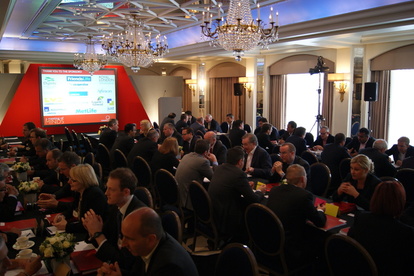Against the backdrop of RDR, Brexit and a substantial shift towards outsourcing investment offerings and passive investments, the IFA community is undergoing a period of intense change. There is therefore a tectonic shift in the products that advisors require from wealth managers. It is imperative that wealth management understand and adapt their products and services to reflect these changes and ensure they extrapolate the commercial opportunities these present.
Headlines:
- Following the Retail Distribution Review, the tectonic plates of advice and investments shifted radically. The interest in upgrading the client base to a higher minimum asset level is intense.
- Roundtable participants discussed the shift in product trends following the introduction of structured fees for financial advisers and the products that advisers now want from wealth managers
- Brexit led several wealthy individuals take money out of the UK, and redistribute into European markets.
- Whilst UK property had been booming in recent years, the industry is seeing a lot more diversification since the referendum as investors seek to minimise their risk exposure.
Key issues and challenges:
- Adviser business models more specifically have been transforming at a rapid pace, and the industry has witnessed a substantial shift towards outsourcing investment offerings.
- The intermediary market size is growing and has hit the £1.5 trillion figure, continuing on a 6% growth rate
- Data shows that vertically integrated firms are one of the fastest growing segments within this sector, and other IFAs are underperforming. What does this mean? In a nutshell, the industry is facing a huge period of change.
- In 2017, data shows that minimum asset sizes for new clients have been reduced – but advisers implementing minimum asset levels have increased.
- Increased client segmentation and robo-advice channels have played a role in this. There is concern that this may widen the already considerable advice gap as clients seek a cheaper alternative solution for their investment requirements.
- Fees are creeping up and a growing proportion of advisers are now charging clients a percentage of assets under management. Portfolio outsourcing continues to grow, with more advisers outsourcing more of their assets.
- Participants of the roundtable opined that they have been seeing less people using traditional multi-managers and multi-asset funds. There is much more of a focus on outcome-oriented products. The number of financial advisers shrank rapidly following the announcement and implementation of RDR, although this has now since stabilised.
- The impact of political and social change has had a dramatic effect on the peaks and troughs for this advisory community.
- Alongside this wavering uncertainty in the success of British markets, comes an increasing interest in passive investing.
- Firms are under pressure to reduce costs, and many modern portfolio services are beginning to use passive investments whereas previously they had used active vehicles.
- Because clients are much more aware of the total expense ratios than they used to be, UK investors are beginning to replicate American passive investment trends. And as a result of this, charging needs to be very transparent and appropriate for each and every client: Clients who do want to continue using passive investing however, the explanation for this is most likely to be echoing the digital opportunities offered through robo-advice and their cheaper associated costs.
Conclusions and Solutions:
- Brexit has set the scene for the changing IFA community this year, causing some concerns and rifts in the shifting marketplace.
- Increasing numbers of advisers charging clients a percentage of assets under management.
- Portfolio outsourcing also continues to grow, with more advisers outsourcing more of their assets – all types of DAM continue to benefit as a result.
- The impact of RDR is interpreted relatively positively and demand for passives is continuing at a steady pace, but allocation weightings remain relatively low.
Expert: Phil Middleton, Schroders
Facilitator: Laura Cavacuiti


